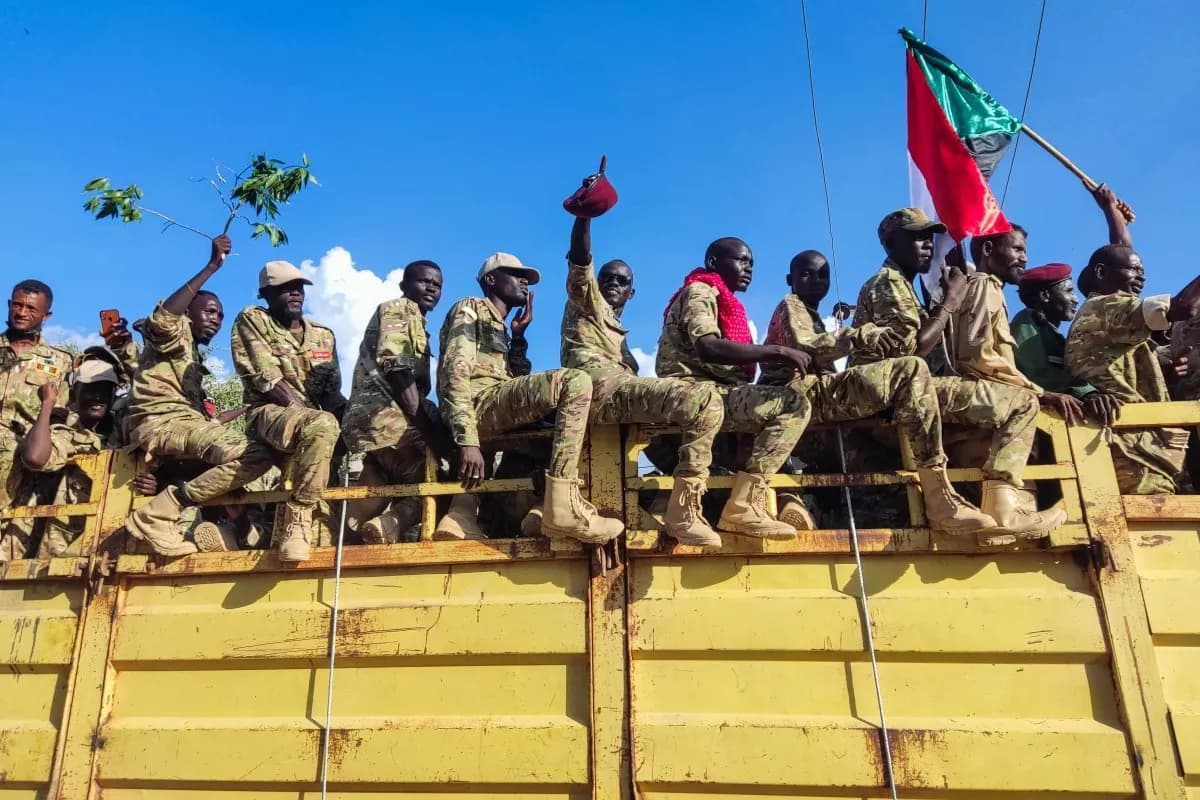We're loading the full news article for you. This includes the article content, images, author information, and related articles.
Washington's sharp condemnation of paramilitary atrocities in Darfur puts pressure on regional actors, including alleged arms supplier the UAE, and highlights Kenya's delicate diplomatic role in a spiraling humanitarian crisis.

GLOBAL – The United States has issued its most forceful call to date for international action to sever the flow of weapons to Sudan's paramilitary Rapid Support Forces (RSF), following their capture of el-Fasher in North Darfur and subsequent reports of mass atrocities. The demand puts a global spotlight on the external actors fueling the devastating 31-month conflict and carries significant implications for regional stability and Kenya's ongoing diplomatic engagements.
Speaking after a G7 foreign ministers' meeting in Hamilton, Canada, on Wednesday, 12 November 2025, U.S. Secretary of State Marco Rubio condemned the RSF for committing “systematic atrocities.” “I think something needs to be done to cut off the weapons and support that the RSF is getting as they continue with their advances,” Rubio stated, describing the situation as “horrifying.” He asserted that the support was “clearly” coming from outside Sudan and warned that the U.S. knows who the backers are and would be making it clear that their actions would “reflect poorly on them.”
While Secretary Rubio did not publicly name the United Arab Emirates, the Sudanese Armed Forces (SAF) have persistently accused the Gulf state of supplying the RSF with weapons, mercenaries, and logistical support. These allegations are supported by reports from United Nations experts and U.S. intelligence agencies, which have documented numerous cargo flights from the UAE to neighboring countries like Chad, believed to be destined for the RSF. The UAE has consistently and vehemently denied these claims, stating its support is purely for humanitarian aid and that it rejects interference in the conflict.
The U.S. call for action follows the fall of el-Fasher, the capital of North Darfur, to the RSF on 26 October 2025, after a brutal siege lasting over 18 months. The city's capture gave the RSF, which evolved from the Janjaweed militias accused of genocide in the 2000s, control over the entire Darfur region. In the aftermath, a wave of horrific reports has emerged from the UN, human rights organizations, and survivors. The UN Human Rights Office has received alarming accounts of summary executions, widespread sexual violence used as a weapon of war, torture, and ethnically motivated attacks. Satellite imagery has revealed evidence of mass graves and bloodstains on city streets. The UN Special Adviser on the Prevention of Genocide, Chaloka Beyani, warned on 6 November 2025, that the violations could amount to atrocity crimes.
The escalating conflict and international response place Kenya in a complex position. As a regional anchor state and a key player in the Intergovernmental Authority on Development (IGAD), Kenya has historically played a crucial role in peace negotiations concerning Sudan, including hosting talks that led to the 2005 Comprehensive Peace Agreement. The government of President William Ruto has been active in IGAD-led processes to mediate the current conflict. However, Kenya's neutrality has been questioned. In February 2025, the SAF-led government in Khartoum accused Nairobi of an “act of hostility” for hosting RSF leaders for political talks, a move Kenya defended as part of its commitment to providing a non-partisan platform for dialogue. This diplomatic friction underscores the challenge for Kenya in balancing its peacemaking ambitions with the complex geopolitics of the conflict, where regional powers have competing interests.
The war, which erupted from a power struggle on 15 April 2023, has created the world's largest displacement crisis. According to the International Organization for Migration (IOM) and the UN, over 12 million people have been forced from their homes, with nearly 4 million fleeing into neighboring countries already under strain, including Chad, South Sudan, and Ethiopia. The conflict has pushed millions to the brink of starvation, with famine officially declared in parts of the country. The influx of refugees poses significant security and humanitarian challenges for the entire East Africa region. Kenya, which already hosts a large refugee population, remains a key destination and transit country, with its government reaffirming its commitment to providing humanitarian support and a safe space for those fleeing the violence.
Keep the conversation in one place—threads here stay linked to the story and in the forums.
Sign in to start a discussion
Start a conversation about this story and keep it linked here.
Other hot threads
E-sports and Gaming Community in Kenya
Active 9 months ago
The Role of Technology in Modern Agriculture (AgriTech)
Active 9 months ago
Popular Recreational Activities Across Counties
Active 9 months ago
Investing in Youth Sports Development Programs
Active 9 months ago